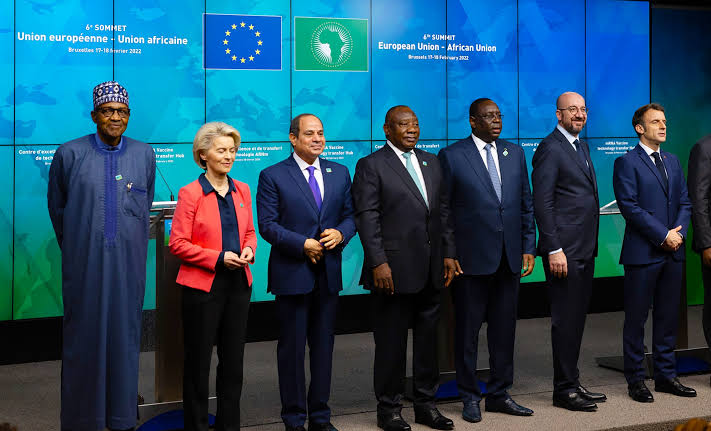By John Okeke
European businesses operating in the country and the European Union Delegation to Nigeria are stepping up collaboration towards helping to address the skills gap in the employment sector and leveraging Nigeria’s huge population of young people to drive economic prosperity.
This was contained in a release by the European Union Commission in Abuja and made available to THE AUTHORITY.
At a Stakeholders Conference hosted by European Business Chambers in Nigeria (Eurocham) in Lagos on last week , participants sought ways to raise the country’s stock of human capital and enhance employability and economic growth. The event was themed “Youths, Education, Employment and Skills.”
At the conference, the European Union Ambassador to Nigeria and ECOWAS, Ms Samuela Isopi, said Youth, Education, Employability and Skills (YEES!) are also a top concern and top priority for the European Union, both internally and in its cooperation with partner countries. Ambassador Isopi, who is also the Honorary President of Eurocham Nigeria, described human capital as key to Nigeria’s development, and said the EU, its Members States and EU businesses recognised this in their engagements with the country.
Both the European Union and Eurocham Nigeria are playing leading roles in the Nigeria Jubilee Fellowship Programme (NJFP), a collaborative initiative between the Nigerian Government and key stakeholders to build a reservoir of innovative and employable skills in the country, by placing smart young graduates in paid 1-year internships in companies across the country. The programme targets 100,000 youths over a five-year period.
“Demography has indeed the potential to help transform Nigeria; but it also poses challenges in terms of demand for quality education, skill development and employment,” Ambassador said.
With young people making up 70% of Nigeria’s population, the EU has prioritised the youth across all areas of its cooperation with the country. Under the Team Europe Initiative “Investing in Young Businesses in Africa” (IYBA) launched in Nigeria last year, the EU is rolling out a number of regional and national projects aimed at enhancing job creation for the youth, enhance their employability and entrepreneurship.
The number of young Nigerians awarded scholarships under Erasmus+, the EU’s flagship programme for education, training and youth development, has quadrupled in the last four years, rising to over 200 in 2022, and making Nigeria the country with the second highest number of Erasmus+ scholarships worldwide.
Also recognising that youth empowerment is critical in the perspective of coming general elections, the EU has put the youth and their role in democratic governance first, through programmes aimed at mobilizing Nigerian youth to register and vote in the elections.
Nigeria’s former Minister of Education and ex-Vice President of the World Bank, Ms Obiageli Ezekwesili, who chairs The School of Politics, Policy and Governance (SPPG.org) was keynote speaker at the event.
Lagos State Commissioner for Education, Ms Folashade Adefisayo; the CEO of Teach for Nigeria, Ms Folawe Omikunle; CEO of Siemens Energy, Mr Seun Suleiman; and the CEO of Spie Nigeria, Mr Guillaume Niarfeix; participated in a panel session on “Human Capital, a key factor of Success for Companies: How to Recruit, Train and Retain Talent to Secure Business Growth in a Challenging Environment”.
European companies have continued to play leading roles in Nigeria’s economy, providing jobs, creating values and contributing to the country’s economy in a positive, sustainable manner. While the European Union is the leading contributor to the Jubilee Fellowship fund, Eurocham member companies are notable destinations for the interns, with 16 of them already participating in the innovative programme.
All Eurocham member companies also have dedicated Management Trainees Programmes; participate actively in the NYSC scheme; and globally impact thousands of young Nigerian through their in-house development programmes.
The European Union is Nigeria’s biggest trading partner, with trade valued at about 29 billion euros a year and a balance, which is significantly in favour of Nigeria. The 27 Member States of the EU are also Nigeria’s largest foreign investor with total Foreign Direct Investments stock estimated at 23 billion euros.
Eurocham Nigeria was formed in 2018 to give a common voice to European businesses and together with the EU Delegation, serve as a platform for engaging with the Nigeria authorities on issues that impact on businesses. From 18 companies at inception, the membership of the chamber has increased to 35 and counting.



